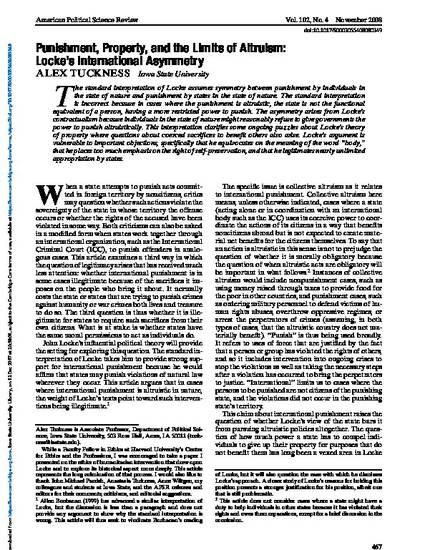
The standard interpretation of Locke assumes symmetry between punishment by individuals in the state of nature and punishment by states in the state of nature. The standard interpretation is incorrect because in cases where the punishment is altruistic, the state is not the functional equivalent of a person, having a more restricted power to punish. The asymmetry arises from Locke's contractualism because individuals in the state of nature might reasonably refuse to give governments the power to punish altruistically. This interpretation clarifies some ongoing puzzles about Locke's theory of property where questions about coerced sacrifices to benefit others also arise. Locke's argument is vulnerable to important objections, specifically that he equivocates on the meaning of the word “body,” that he places too much emphasis on the right of self-preservation, and that he legitimates nearly unlimited appropriation by states.
Available at: http://works.bepress.com/alex-tuckness/2/

This article is published as Tuckness, Alex. "Punishment, Property, and the Limits of Altruism: Locke's International Asymmetry." American Political Science Review 102, no. 4 (2008): 467-479. doi:10.1017/S0003055408080349. Posted with permission.